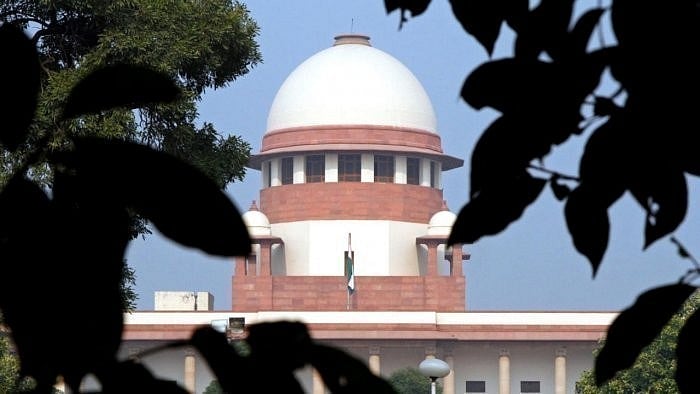
The Supreme Court of India.
Credit: PTI File Photo
New Delhi: The Supreme Court has decided to examine a plea by Karnataka government questioning validity of the High Court's order, which held that the apex court's judgment in Pankaj Bansal Vs Union of India (2024) mandating furnishing grounds of arrest to the accused would have to be applied retrospectively.
"We are of the opinion that the matter requires consideration," a bench of Justices K V Vishwanathan and N Kotiswar Singh said, after hearing senior advocate Sidharth Luthra and advocate D L Chidananda for the Karnataka government.
The counsel also pointed out in another case, the apex court had on April 22, 2025 reserved its judgment, to a question if in each and every case, even arising out of an offence under Indian Penal Code, would it be necessary to furnish grounds of arrest to an accused either before arrest or forthwith after it.
The court had then also decided to consider another question whether, even in exceptional cases, where on account of certain exigencies it will not be possible to furnish the grounds of arrest either before arrest or immediately after arrest, the arrest itself would be vitiated on the ground of non-compliance with the provisions of Section 50 of the Code of Criminal Procedure.
"The outcome of this judgment will have a bearing on finally deciding this matter," the bench opined.
Luthra also drew attention of the court to the fact that in a large number of cases, which are pending before the High Court, where it is likely that the impugned order herein would be cited as a precedent.
Considering the urgency involved in the matter, the bench fixed it for consideration on July 18. It issued notice to the opposite party, Hemanth Datta alias Hemantha alias Baby and another.
In its petition, state government challenged the final judgment of April 17, 2025 passed by the High Court of Karnataka, claiming it has erroneously held that law declared by this court by the judgment of October 03, 2023 in the case of Pankaj Bansal Vs Union of India (2024) will apply retrospectively to cases where arrest were made prior to the date of the verdict and that the said arrests can be challenged on the ground of non-service of grounds of arrest.
"The High Court has failed to take note of the declaration of law made in para 45 of the judgment in Pankaj Bansal case, wherein it is specifically stated that “it would be necessary, henceforth, that a copy of such written grounds of arrest is furnished to the arrested person as a matter of course and without exception”," the plea said.
The state government also contended the High Court's view was contrary the judgment of December 15, 2023 passed by the Supreme Court in Ram Kishor Arora Vs Enforcement Directorate, (2024), wherein the issue of retrospective or prospective application of law declared in Pankaj Bansal case was considered.
It has been held by this court that non-furnishing of grounds of arrest in writing till the date of pronouncement of judgment in Pankaj Bansal case could neither be held to be illegal nor the action of the officer concerned in not furnishing the same in writing could be faulted with, the state government's plea said.
